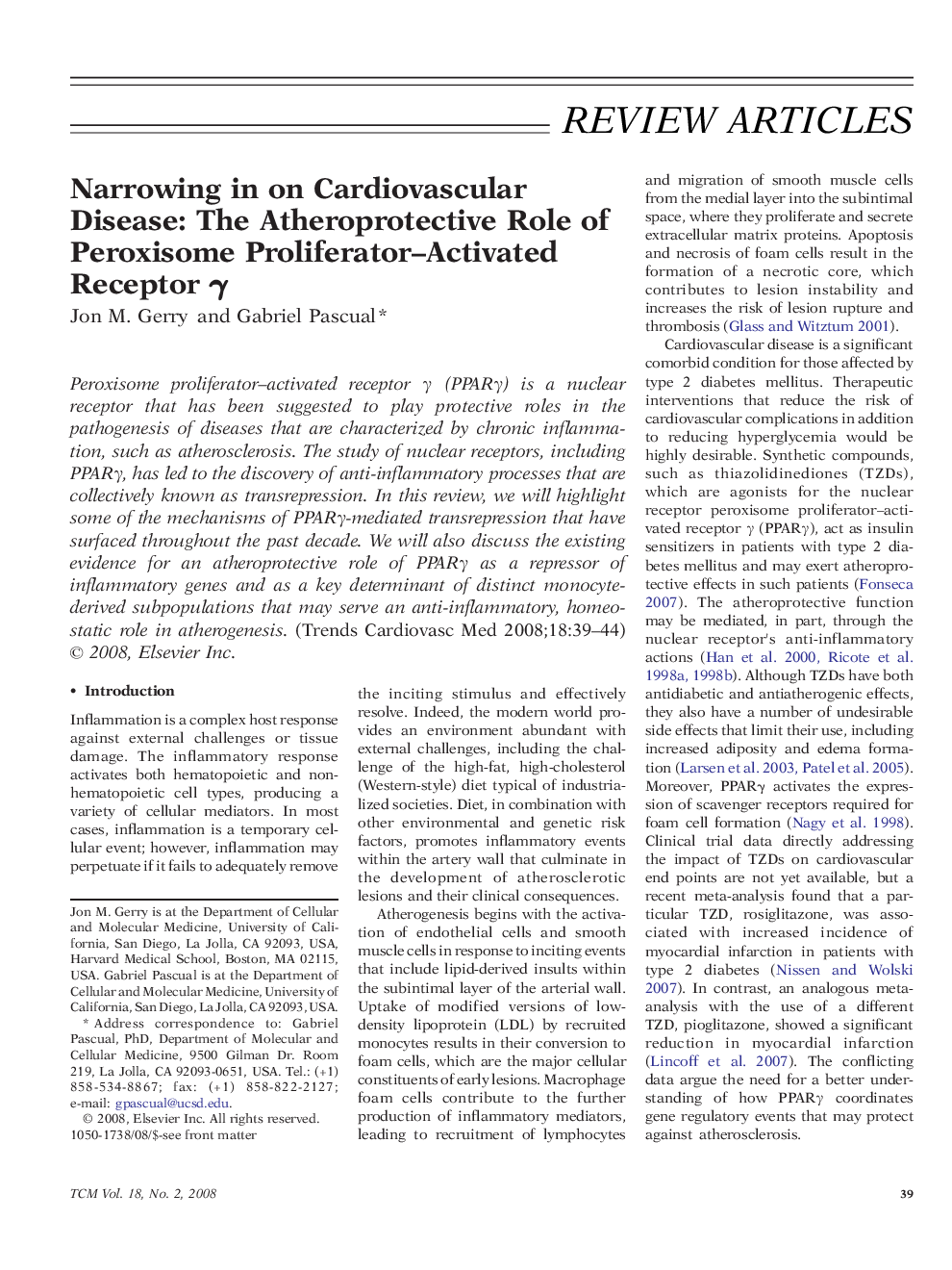| Article ID | Journal | Published Year | Pages | File Type |
|---|---|---|---|---|
| 3030680 | Trends in Cardiovascular Medicine | 2008 | 6 Pages |
Peroxisome proliferator–activated receptor γ (PPARγ) is a nuclear receptor that has been suggested to play protective roles in the pathogenesis of diseases that are characterized by chronic inflammation, such as atherosclerosis. The study of nuclear receptors, including PPARγ, has led to the discovery of anti-inflammatory processes that are collectively known as transrepression. In this review, we will highlight some of the mechanisms of PPARγ-mediated transrepression that have surfaced throughout the past decade. We will also discuss the existing evidence for an atheroprotective role of PPARγ as a repressor of inflammatory genes and as a key determinant of distinct monocyte-derived subpopulations that may serve an anti-inflammatory, homeostatic role in atherogenesis.
